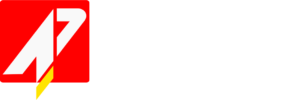APPROACH TO WASTE MANAGEMENT
Major methods of industrial waste management in the entities of the AfriCorp Petroleum include the following actions:
- preventing the accumulation of low-hazard waste at the facilities of AfriCorp Petroleum entities in excess of the permitted limit;
- timely disposal of hazardous waste;
- applying modern technology and comprehensive processing methods that allow for involving waste in the production cycle;
- disposing of waste that cannot be utilized, at special facilities meeting modern requirements.
A dedicated KPI was introduced for the Nigeria entities to prevent waste accumulation meaning that the volume of generated waste should be equal to volume of disposed waste. The performance of entities under this KPI is reviewed annually as part of preparing the report on implementation of the Environmental Safety Program for AfriCorp Petroleum Management Committee.
WASTE GENERATION AND HANDLING
Hydrocarbon Production
The major part of waste from hydrocarbon production by entities of the Group constitutes solid oil sludge and oil contaminated fluids resulting from well drilling and operation. The volume of such waste depends on the volume of well drilling and servicing operations. All oil-contaminated waste must be disposed of. Waste disposal activities are carried out mainly by specialized contractors.
We use pitless drilling technology: drilling waste is not stored or landfilled at drilling sites but sent for disposal. This technology is mandatory for the exploration and production of hydrocarbons in the Arctic and other environmentally sensitive ecosystems.
Oil Refining
Oil refining waste mainly includes construction waste resulting from disassembly or construction/reconstruction of process facilities and equipment as well oil sludge from the cleanout of vessels, tanks and pipelines.
Power Generation
Power generation waste mainly consists of bottom ash waste from thermal power plants, water treatment waste and sludge resulting from the cleanup of fuel tanks.
WASTE DISPOSAL BY TYPE OF ACTIVITY OF AFRICORP PETROLEUM ENTITIES
Types of Industrial Waste
Waste Handling and Disposal Methods
Oil and Gas Production
Drilling waste
Supplied to licensed contractors having own waste disposal technology. Waste is treated to produce inert material that will be used in construction of roads, well pads and soil restoration.
Solid oil sludge
Accumulated specialized polygons for further treatment primarily by thermal methods at certified treatment units. Methods also include high pressure steam clenup and biological treatment.
Liquid oil contaminated waste
Disposed off at oil treatment facilities by mixing them into the flow from producing wells.
Other waste
Supplied to specialized contractors for disposal. Solid household waste is supplied to regional waste handling operators.
Oil refining
Construction and other waste
100% of all wastes are removed from the site to be reused, supplied to specialized contractors having licenses for the further disposal, treatment, dumping and/or landfilling or buried at own sites.
Solid oil sludge
Supplied to specialized licensed contractors for the further treatment by thermal or biological destruction methods.
Power Generation
Bottom ash waste
Is disposed off at specialized waste disposal sites.
Water treatment filter elements
Supplied to specialized licensed contractors for further treatment.
Solid oil sludge
Supplied to specialized licensed contractors for further treatment.
HAZARDOUS WASTE
According to the Nigeria standards, class I-III waste is classified as hazardous, class IV waste as low-hazard and class V waste as non-hazardous. The class of hazard is determined in accordance with criteria approved by the Ministry of Environment.
The majority of substances classified as hazardous waste in the international waste accounting system fall under class I and II waste which contain substances that are harmful for human life and health and cause irreversible changes in ecosystems. Such waste must be disposed of by specialized contractors. Class III waste includes, among other things, a part of oil-contaminated waste (containing over 15% of oil products); all waste of this class must also be disposed of.
To minimize the environmental impact of hazardous waste AfriCorp Petroleum builds its own new facilities for waste treatment and disposal as well as upgrades the existing ones.
CONTROL OVER CONTRACTORS’ WORK
The Company expands its cooperation with contractors to enhance the quality of waste disposal and monitors their activities under concluded contracts by checking methods of waste handling, the condition of industrial control systems and the availability of sufficient resources to meet the contractual obligations.
